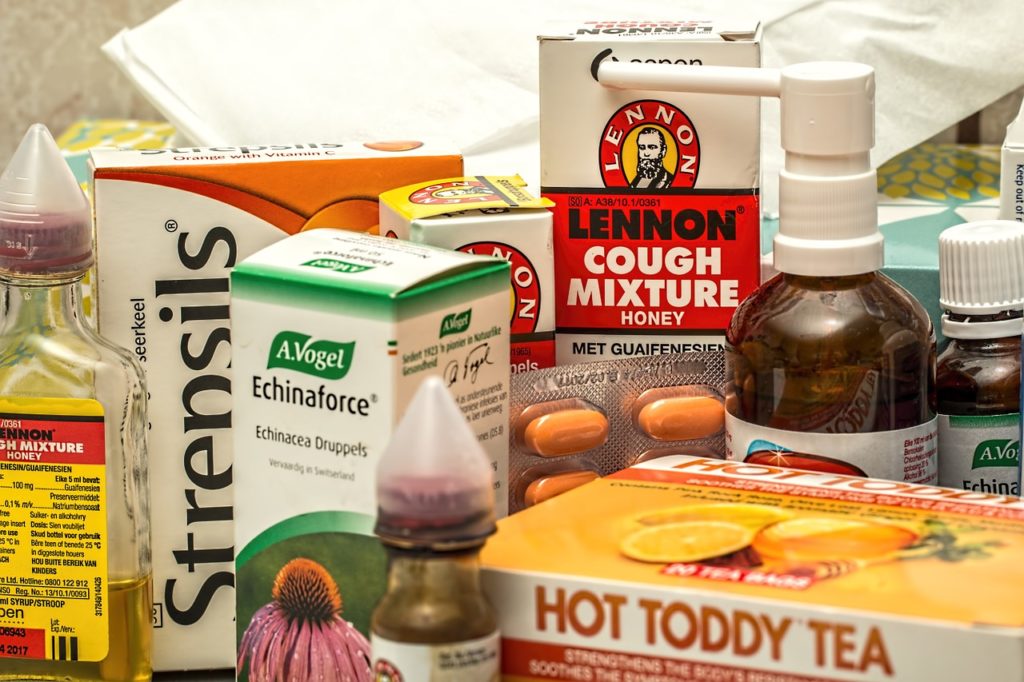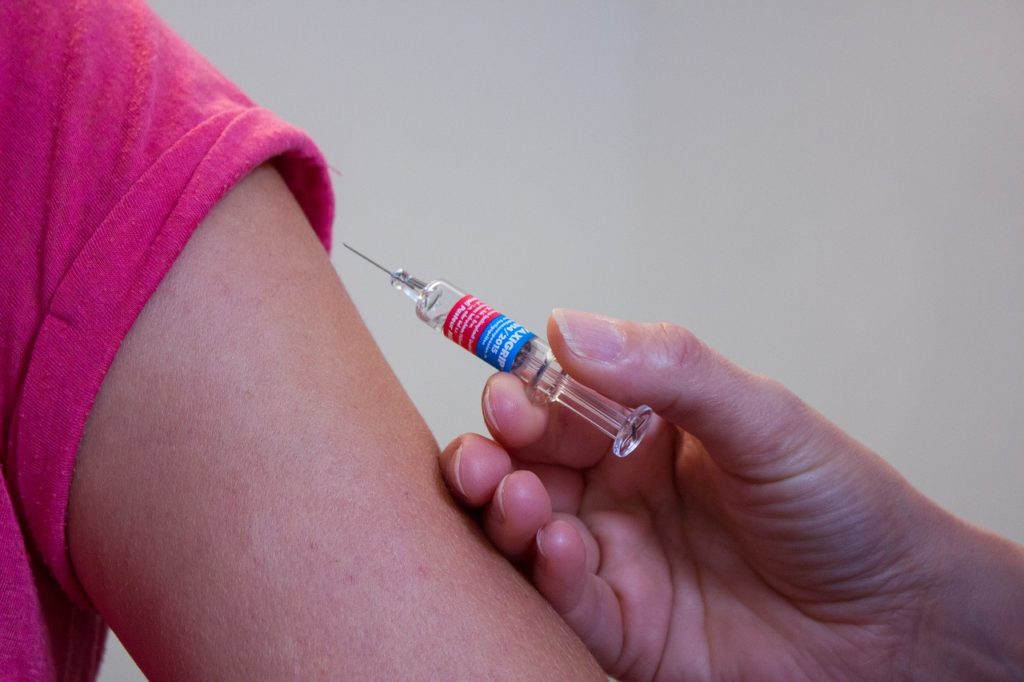With cold and flu season approaching, everyone is asking ‘Do I need a flu jab?’. Below an award-winning GP has given his expert tips for keeping pain, aches, sniffles, and sneezes at bay.
Doctors often manage to avoid sickness despite being surrounded by it, so Dr Gero Baiarda has shared his top secrets on how to stay healthy this winter.
7 Ways to Avoid Catching the Flu
The days are getting shorter, the kids are back at school, and there are noticeably more leaves drifting around. As the Stark family motto grimly states, ‘Winter is coming,’ and with it, the promise of the start of the flu season.
For most people who catch a cold, it represents nothing more than a moderate inconvenience. A cold may necessitate a few days off work feeling dreadful and sipping endless cups of tea and Lemsip.
The flu, on the other hand, is not to be underestimated. It can be dangerous and is not infrequently fatal, especially if you are elderly or have diabetes, heart disease, asthma or indeed any condition that compromises your immune system.
The trick is not to catch flu in the first place. Here are ways you can help yourself to do that.
Do I Need A Flu Jab?
1) Get your flu jab!
This is by far the single most effective course of action you can take to avoid catching flu.
Ideally, you should arrange to have it as soon as you can in the flu season, which is early autumn. But you can have the flu vaccine any time between now into Spring next year.
The annual flu vaccine is designed to protect you against all the influenza strains that are expected to be most prevalent in any particular year. You need to refresh your vaccination every year because the prevalent flu strains are constantly revolving.
Even following vaccination, you may still catch other flu strains. However the infection is likely to be much less severe than you might have otherwise experienced, and you would be extremely unlucky to develop serious or life-threatening complications.
The flu vaccine is available for free on the NHS to anyone over the age of 65 and all primary school children in England and Wales. In Scotland, it is available on the NHS for all kids between the ages of 2 and 5 who are not yet in school. Additionally, the flu vaccine is accessible on the NHS for pregnant ladies, anybody with a BMI of 40 or over. The flu jab is also offered to anybody with a serious underlying health condition or a compromised immune system.
Clearly, this list excludes a large proportion of the population, and I would strongly suggest accessing the flu vaccine privately to those who are not eligible for it on the NHS. It is widely available, does not cost a great deal, and the price you pay is small in comparison to the investment made in preserving your health. To have it done at your own convenience, in the comfort of your own home, go via the UK’s first doctor-on-demand app, . The digital service connects its users (patients) directly with a local NHS GP who will visit them within hours at a location of the patient’s choice, be it their home, workplace or a hotel if they are travelling from abroad.
2) Wash your hands
I am asked often by patients how it is that I am in such regular contact with all manner of nasty bugs and yet do not seem to be ill very often. There is no mystery to it…I just wash my hands a lot! In fact, I do so before any contact with a patient or before I consider having a bite to eat or even having a cup of coffee.
Soap, warm water, and thorough rubbing for at least 20 seconds will wash virtually all the bacteria and viruses on your hands down the drain. The soap does not even need to be antibacterial. Normal household soap works just as well.
Rinse your hands once they are clean, and then pat them dry on paper towel which you then discard.
Do this every time you sneeze or cough and especially before meals. Those portable alcohol-based hand sanitisers are also good to have in your pocket when you are out and about and want to grab a sandwich.
How many doors, surfaces, handles etc. do you touch when you nip out from work for a hot drink, and how many other people have touched them before you? Is their hygiene as good as yours?
I always have a large bottle of sanitiser on my desk and use it to refill the smaller portable travel-sized sanitiser I carry around with me, so you need not impose unnecessary plastic on the world.
3) Keep your bugs to yourself
It’s all too easy to catch the flu. When someone nearby coughs or sneezes, an aerosol cloud of virus-laden droplets is projected up to four feet away where it hangs for some time just waiting to come into contact with your mouth, eyes or nose.
If you need to cough or sneeze, always use a disposable tissue rather than a cloth handkerchief. If you haven’t got one to hand, cough into your sleeve in the crook of your arm. Whichever way you do it, immediately wash your hands in the way I have described or use a sanitiser. By doing so, you are keeping viruses off your hands and therefore other people.
In fact, you can easily pick up flu from touching a surface like the restaurant table where a previous customer before you has been coughing or sneezing. The flu virus can linger on smooth surfaces for as long as 24 hours.
When you touch a contaminated surface and then inadvertently touch your eyes, nose or mouth, you introduce a massive viral load directly into your body. Consider bringing along disinfectant wipes to clean any surfaces you’re about to touch.
Don’t share cups, plates or cutlery, and be sure to wash anything you do use in the dishwasher or sink with hot water and washing up liquid as soon as possible. Again, antibacterial washing up liquid is not necessary. Keep your toothbrush away from any communal holder, and make sure anybody who is ill has their own pillow and bedding.
If you have been in an environment where there has been a lot of coughing and sneezing, consider taking a shower as soon as you can and discarding your contaminated clothing as you get home rather than passing any viruses on to your other half and kids, even it means foregoing a cuddle!
4) Avoid close contact
Try to avoid crowded public places as much as you can. In fact, the top of that list should be your A&E or GP waiting rooms, which are crammed to the brim with the aggressively infectious.
If you do feel ill and suspect you have caught a cold or the flu virus, do not go into work. Only seek a medical opinion if you are having trouble breathing or develop a very high fever that will not respond to paracetamol and ibuprofen.
5) Walk more, and walk faster
The benefits of walking are plentiful; in fact, I can’t think of any drawbacks at all. A simple exercise such as brisk walking brings about a quantifiable boost to your immune system, sending your defender white blood cells on a vigorous trek around the body to identify and destroy viruses.
A report from the Ramblers Association and Macmillan Cancer Support found that if everyone in England regularly walked for half an hour a day, it could save 37,000 lives a year. It also cuts the risks of type 2 diabetes and heart disease. Walking has been shown to have protective effects against dementia. We should all do it a lot more.
For those aged over 40, cycling and swimming are both great forms of low-impact exercise. They don’t require high fitness levels. You could find a local park route and cycle for 20 – 30 minutes a day. Or you could visit your local pool every morning to swim 30 lengths. Whatever it is, you can increase your health and fitness by building a simple workout routine into your life.
A few hours after you have stopped exercising, your immune system returns to its previous less enthusiastic state. For this reason, individuals who exercise 4-5 times a week are less likely to catch the flu.
6) Eat a healthy diet
Once you have the flu, all I would recommend is bed rest, plenty of fluids, over-the counter paracetamol and ibuprofen, and a balanced, nutritious diet. Eating too little protein can weaken the immune system. I would recommend a diet rich in protein to help avoid the flu, especially fish, eggs, nuts and yoghurt.
Health food shops and chemists offer a multitude of supplements, vitamins, and herbal remedies that claim to help you lessen flu symptoms or avoid them all together.
7) Get enough sleep
Bedtime is when you repair and recharge your body. Getting enough sleep is a good habit to develop to best avoid catching flu in the first place. Sleep will also fight it off most effectively if you do become infected. The average adult needs between 6 and 8 hours of sleep to keep their immunity fighting fit.
Finally…
All of the above should reduce your risk of catching the flu or decrease its severity if you do fall victim to the deadly virus.
However, if you do come down with the flu, look out for your friends, family and colleagues. You are infectious for up to a week after you catch the flu. Stay home until you have fully recovered. Your temperature needs to be within normal limits, without the use of paracetamol or ibuprofen for at least 24 hours.
Nobody likes having to take time off, but your workplace and family household will adapt and manage. However, someone who is suffering from the flu you gave to them, may not manage so well!
By
Dr Gero Baiarda, Dermatologist & Private GP at GPDQ, the UK’s first doctor-on-demand app











